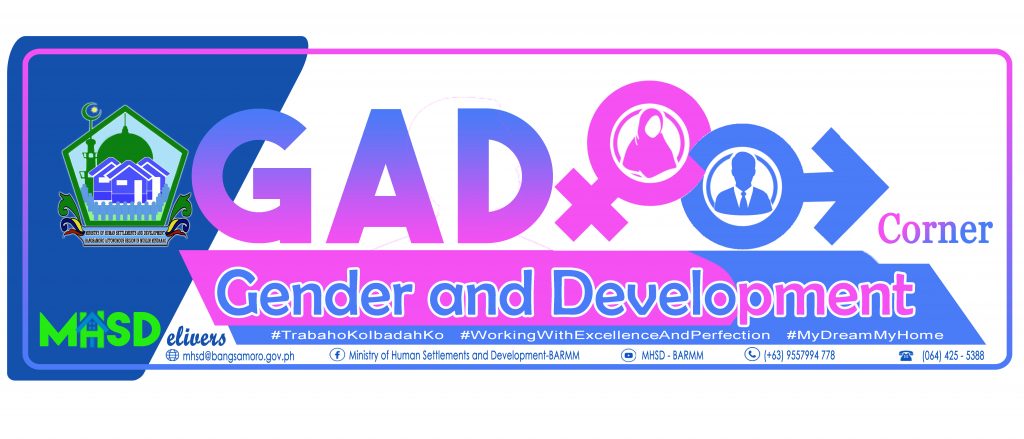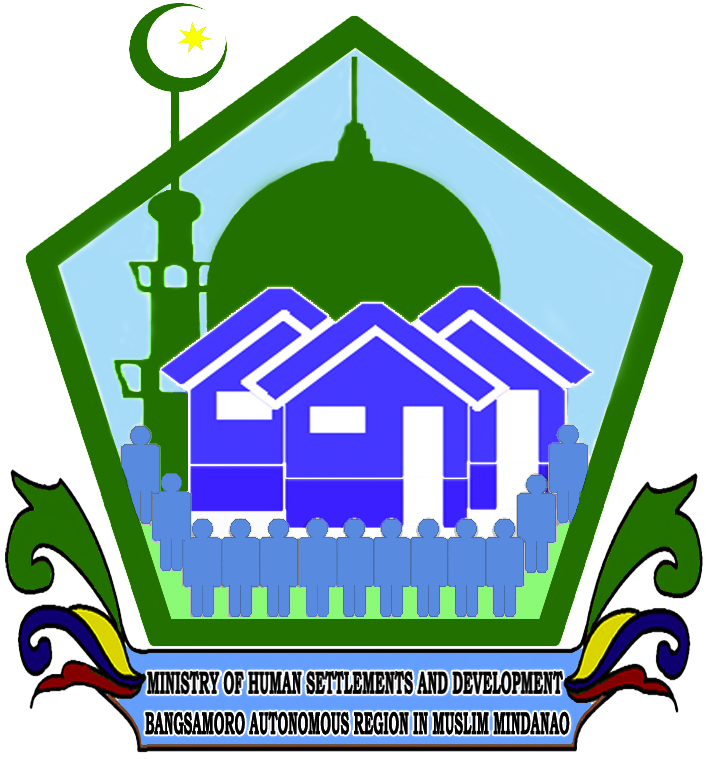
Gender and Development (GAD) Information
GAD OVERVIEW
WHAT IS GENDER AND DEVELOPMENT (GAD)
— is a development perspective that recognizes the unequal status and situation of women and men in society.
— Women and men have different development needs and interests, which is institutionalized and perpetuated by cultural, social, economic and political norms, systems and structures.
GOAL OF GAD
— As a development approach, GAD seeks to equalize the status and condition of and relations between women and men by influencing the process and output of policy-making, planning, budgeting, implementation and monitoring, and evaluation so that they would deliberately address the gender issues and concerns affecting the full development of women.
GENDER EQUITY
— Means giving more opportunities to those who have less and those who are historically and socially disadvantaged based on their needs for them to operate on a level playing field. “Focusing on the needs of women does not mean discriminating against men or putting them at a disadvantage”
— UN–CEDAW (United Nations Convention on the Elimination of All Forms of Discrimination Against Women) recognized the need to remove the biases against and provide special attention to women through affirmative action. It is a temporary measure that will be discontinued when the objectives of equality of opportunity and treatment have been achieved.
GENDER MAINSTREAMING
— Is the Philippine government’s strategy for making agencies work for women’s empowerment and gender equality.
— It is the process of analyzing existing development paradigms, practices, and goals; assessing the implications for women and men of existing legislation policies, programs, projects, and mechanisms.
WOMEN’S EMPOWERMENT
— Is a goal of and an essential process for women’s advancement.
— Is a process and condition by which women mobilize to understand, identify, and overcome gender discrimination and achieve equality.
— Women become agents of development and not just beneficiaries.
— A kind of participation in development that enables women to make decisions based on their own views and perspective.
— To empower women, access to information, training, technology, market, and credit is necessary.
Intellectual aspect:
- Both men and women are enjoined to learn and understand the mysteries of creation
- Both men and women are enjoined to learn from the cradle to the grave
- Both men and women are enjoined to read the Glorious Qur’an, understand its message, live in accordance with its teachings, encourage others to do the same, and strive to make it govern their daily lives
Spiritual/Religious aspect:
- Both men and women are enjoined to believe in the six articles of faith
- Both men and women are required to perform the five pillars of Islam
- Both men and women are obliged to exercise benevolence and right doing in their relationship with other people and other beings
Moral/Ethical aspect:
- Both men and women are enjoined to submit to Allah alone, to have faith, to be obedient, to be truthful, to be patient, to be humble, to give charity, to fast, to be chaste, and to remember Allah often (Surah al-Ahzab 33:35)
Social aspect:
- Both men and women have their respective role in the building of a righteous family
- Special treatment is given to the mother
- A man is advised to find in his bride four qualities: beauty, wealth, family status and good religious upbringing
- Both men and women have the right to choose their partner in marriage
- Both have established rights and obligations in the marriage bond, and either can severe the marital tie, when justified
Economic aspect:
- Both men and women have the right to own, possess, administer, dispose of, or alienate their property
- Both have the duty to pay zakat
- Both are required to perform the hajj
- A woman is entitled to the payment of her mahr in marriage
- She is always entitled to be supported by her father, husband, or son (as the case may be)
Political aspect:
- Both men and women are required to be helpers, one of another, in enjoining what is right, forbidding what is wrong, in the performance of prayer, and in the giving of zakat
- These duties are the main tasks of governance:
1.Performance of prayer;
2.Payment of zakat;
3.Enjoining what is right and good; and
4.Forbidding what is bad and evil
MHSD GAD Plan and Budget & Accomplishment Reports
Plan and Budget
* 2020 Endorsed GAD Plan and Budget
Accomplishment Reports
* FY 2022 Annual Gender and Development (GAD) Accomplishment Report
* 2021 Endorsed GAD Accomplishment Report
* 2020 Endorsed GAD Accomplishment Report
* 2019 Endorsed GAD Accomplishment Report
* Inclusion of GAD corner in MHSD Website
* Reconstitution of MHSD GAD Focal Point System
* Adoption of Gender and Development and its Allied Policies in the Agency

